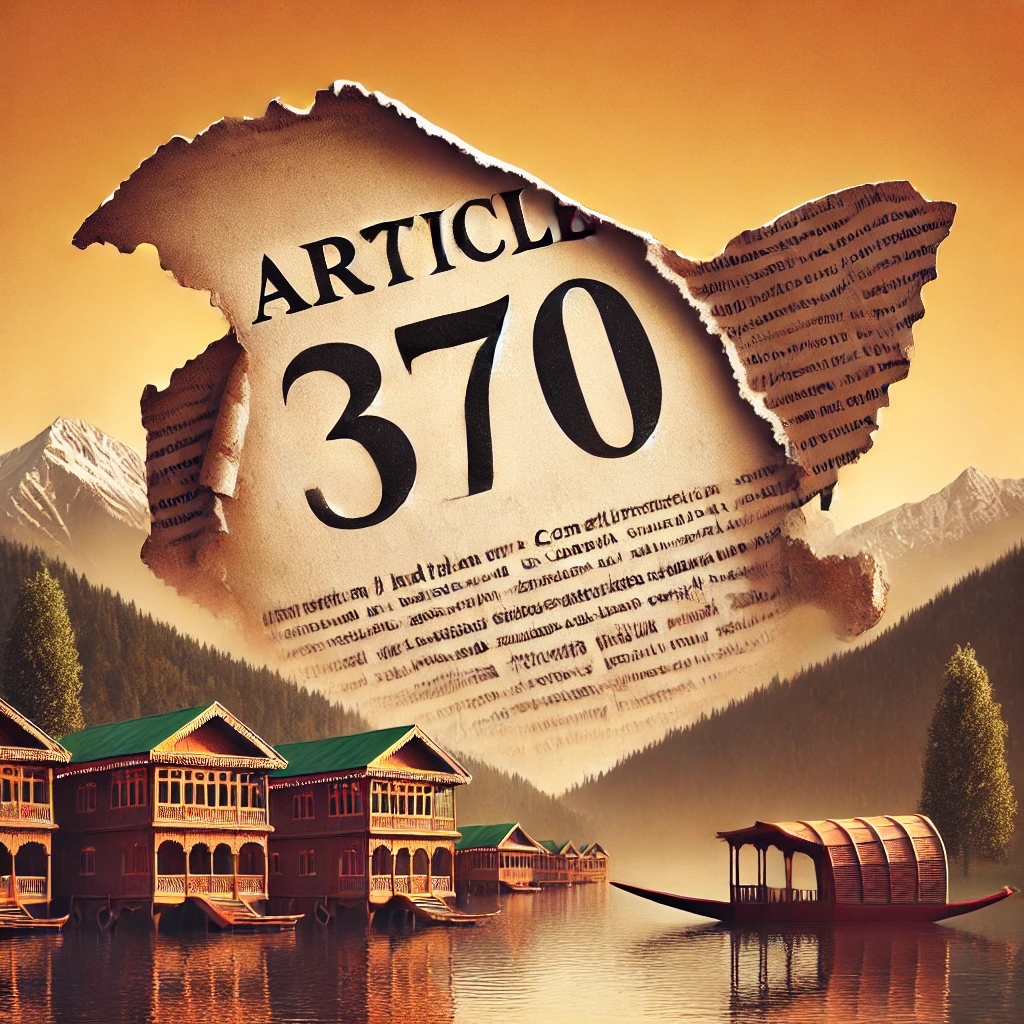Introduction
Article 370 of the Indian Constitution granted special autonomy to Jammu and Kashmir. Initially implemented to acknowledge the region’s unique circumstances, this provision has been a focal point of political debate and controversy. On August 5, 2019, the Indian government revoked this article, marking a significant turning point in Indian politics. This blog analyzes the political implications of this abrogation and its broader impact on Kashmir and Indian federalism.
The Historical Context of Article 370
To understand the implications of its abrogation, one must first consider the historical context. Article 370 was incorporated into the Constitution in 1949. It provided Jammu and Kashmir with autonomy over all matters except defense, foreign affairs, finance, and communications. This special status recognized the unique identity of the region within the Indian Union.
However, over the years, this autonomy became a contentious issue. Critics argued that it fostered separatism, while proponents believed it was essential for maintaining regional identity. Thus, Article 370 became a symbol of political division.
Abrogation of Article 370: Political Ramifications
The Indian government’s decision to revoke Article 370 has sparked intense political reactions. First, it has led to widespread unrest in Kashmir. Protesters argue that the abrogation strips them of their identity and rights. Reports indicate that since the revocation, there has been an increase in security incidents and a rise in anti-India sentiments in the region .
Moreover, the abrogation has significant implications for Indian federalism. Critics argue that this move undermines the principles of federalism by centralizing power. The Indian government has effectively bypassed the state’s legislative authority, leading to concerns about democratic representation. As political analyst K. C. Pant noted, this could set a precedent for similar actions in other states, threatening the federal structure of the country .
Additionally, the move has polarized political opinions across the nation. Supporters claim that it paves the way for greater integration of Jammu and Kashmir into India. They argue that it will facilitate development and stability in the region. Conversely, opponents fear that it may exacerbate tensions and lead to further alienation of the local population .
Impacts on National Politics
The abrogation has also shifted the political landscape in India. It has strengthened the ruling party’s narrative around nationalism and integration. By presenting itself as a decisive force against separatism, the government aims to consolidate its political base.
Consequently, this decision has diverted attention from pressing national issues, such as economic challenges and unemployment. Critics argue that focusing on Kashmir distracts from the government’s failures in addressing domestic concerns. This tactic could potentially backfire, as public discontent over economic issues rises .

Conclusion
In summary, the political perspective on Article 370 reveals deep-seated tensions within Indian society. The abrogation reflects a significant shift in governance, raising questions about the future of Kashmir and the nature of Indian federalism. While supporters celebrate the move as a step toward national integration, critics warn of the potential fallout in terms of local autonomy and identity. As India navigates this complex landscape, the long-term implications remain to be seen.
References
- The Economic Times. “Kashmir unrest post-Article 370 abrogation: A timeline.” Economic Times.
- Hindustan Times. “K.C. Pant on the federal implications of Article 370’s abrogation.” Hindustan Times.
- The Hindu. “Political implications of the abrogation of Article 370.” The Hindu.
- Times of India. “Economic challenges overshadowing Kashmir’s political status.” Times of India.
This analysis provides a comprehensive view of the political implications surrounding Article 370 and encourages further discussion on its impact on India’s future.
Sample Speech for India’s Independence Day (15th August)
কাশ্মীর পরিস্থিতি: ইতিহাস, বর্তমান অবস্থা, এবং ভবিষ্যত সম্ভাবনা
Aviator game review including deposit and cashout test
Casino mirror helps in low-bandwidth conditions
Микрокредит в выходные и праздники
Casino mirror helps you access blocked gambling sites
Casino mirror prevents site errors and interruptions
Experience Lucky Jet for endless fun.
Gaming without limits starts with a fresh casino mirror link.
This is really interesting, You’re a very skilled blogger. I’ve joined your feed and look forward to seeking more of your magnificent post. Also, I’ve shared your site in my social networks!
Genie�e mobile Spiele ohne App � dank LeonBet Web-Version.